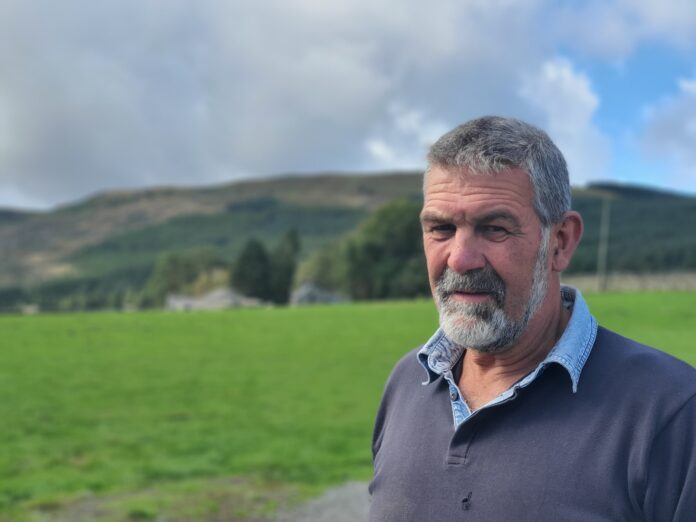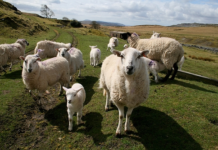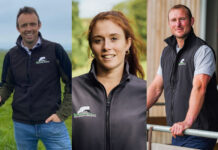For Dafydd Gwyndaf the tragedy of Cwm Penmachno is the diminishing sense of Welsh community.
He is in a unique position to notice the changes across the generations. He said:
“ I’m the third generation on this farm and the family was in the valley before that. My roots are very deep in the Machno Valley.”
Dafydd remembers when the valley was almost wholly Welsh and laments the changes: “The first ever branch of the Urdd was established here, there were also two chapels and an annual eisteddfod held in the villages. I remember the first English family coming to live here and within a few weeks the two children were fluent in Welsh. It was either that or nothing because we hardly spoke any English at all.”
“Every week it changes here as if they’re taking over everywhere. There was a house for sale on the main road in the village and a person from Leicester has bought it at a price that is out of the reach of local people, and they’ve turned it into an AirBNB. It was only on the market for a week or so. Another example was the chapel house and again I don’t think it was on the market for a week. It sold for over four hundred thousand and they are renovating it now. Will this be another AirBNB we just don’t know.”
He is not opposed to change but feels that it should not be to the detriment of the local culture and community, and he adopts the same attitude towards farming.
Dafydd, who has until recently been farming a flock of 1,000 ewes and 30 strong head of Welsh Black suckler cows on 1,000 acres of land over two farms, places huge emphasis on buying local products as a simple indicator of quality.
He said:
“I can follow my produce from birth to the plate. A gentleman in Colwyn Bay used to buy the stock off me. He used to fatten them up and supply Pointen’s butchers in Old Colwyn. They valued the fact that they could follow them right through.
“More recently I’ve been supplying O E Metcalfe Butchers, Llanrwst directly. Nothing is pushed unduly. The food miles are very low, no more than twelve miles, and quite often you can follow it all the way from here down to hotels in Betws y Coed. It’s simple but it works. Good Welsh beef.”
Dafydd remembers a time when the food chain was even more local: “There’d be a slaughterhouse in the village here in Cwm and another in Penmachno, they were about three miles apart. The butcher used to go selling around the area with his van as “far” as Ysbyty Ifan.
“There was a grocer as well who would go round the farms in a van twice a week. If you wanted more of anything you could leave a note by the gate or tell somebody in chapel on a Sunday, and you’d be sure to get it!”
It led to a tremendous community spirit. He explains: “There was no such thing as contractors back then because you would do work for a neighbour and they would do something for you. For example, haymaking: you wouldn’t worry about helpers or anything because you knew that once the quarry had closed for the day and they’d had their tea everybody had their farm to go to help, same ones every year.”
Dafydd is not someone who rejects modern practices but yearns for the return of days gone by without reservation when there was a much stronger Welsh community in the valley.
Though he feels the massive land grabs for forestation is a problem waiting to happen he urges co-operation.
He said:
“I’ve got nothing against planting trees in principle, I’ve planted hedges and small corners and so on myself under various schemes, but carpets of conifers where everything dies underneath it and leaves land soured is not the way forward. When the trees were first planted on neighbouring land to Llechwedd Hafod my father turned our ewes into the plantation over the winter.
“The Head Forester in the village once said they were the best trees in the valley because the ewe lambs were pushing the roots down deeper with their feet, their dung would help fertilise the trees and they would clear away the overgrowth from the trees which was saving time and a job for the workers.
“The Forester said they were the best and tallest trees in the valley. Unfortunately this is not what is planned for future afforestation of land as they will not want livestock grazing under the trees. Whatever they decide on a National level they need to consult with communities before any work is carried out, otherwise we’ll lose more communities to afforestation.”
Help keep news FREE for our readers
Supporting your local community newspaper/online news outlet is crucial now more than ever. If you believe in independent journalism, then consider making a valuable contribution by making a one-time or monthly donation. We operate in rural areas where providing unbiased news can be challenging. Read More About Supporting The West Wales Chronicle

























